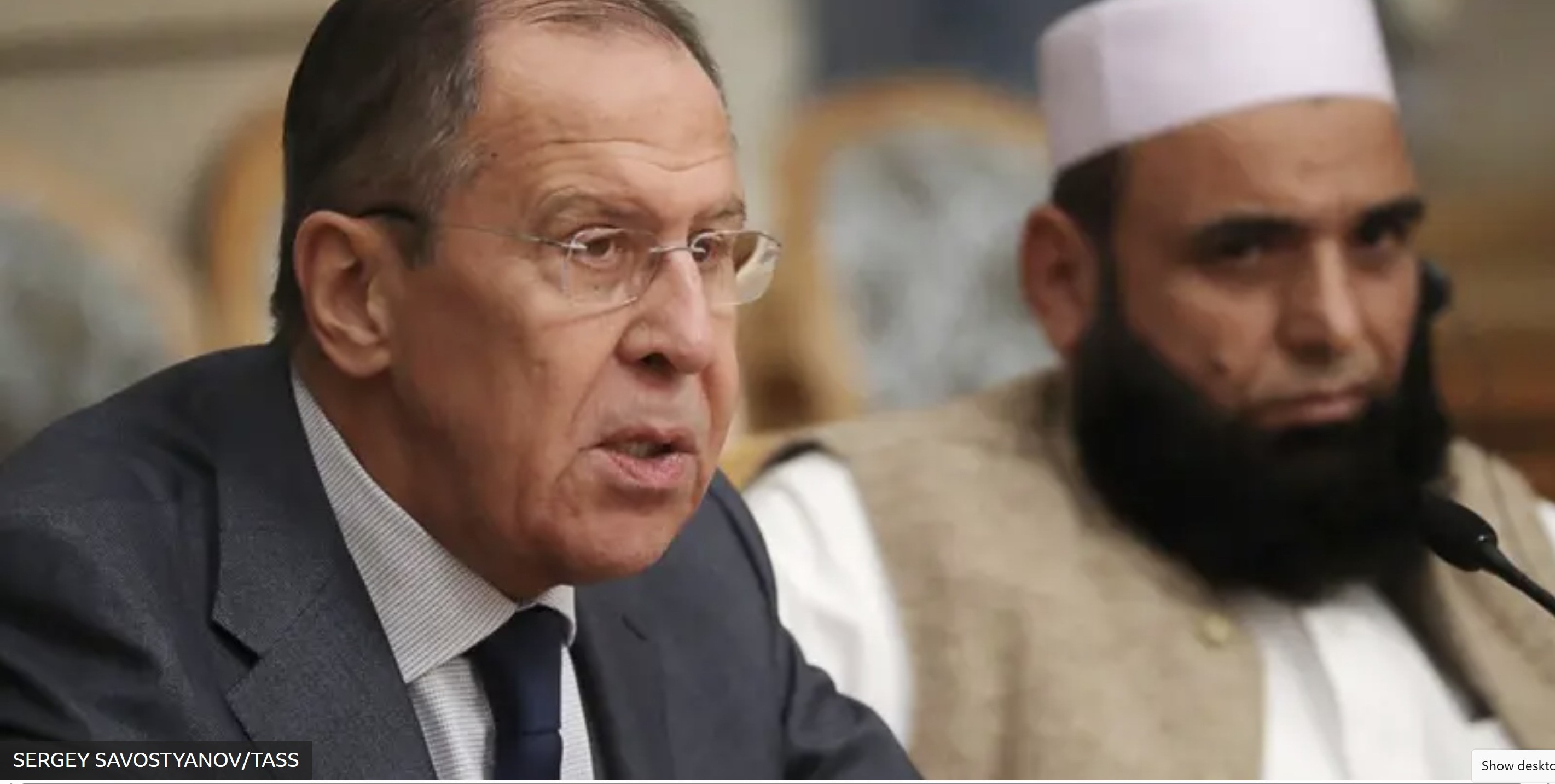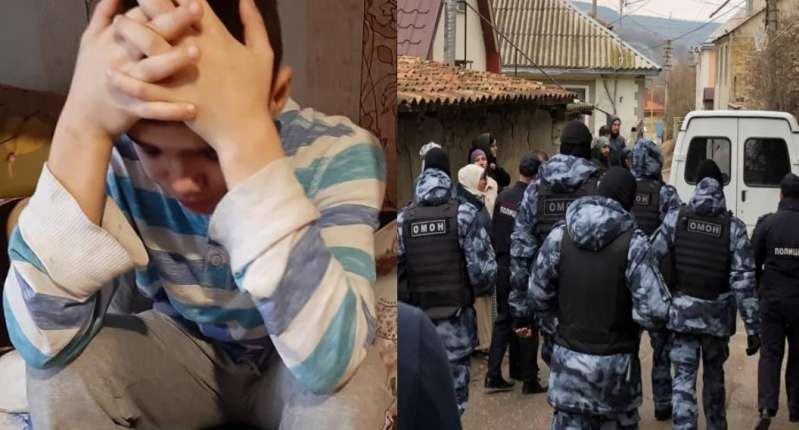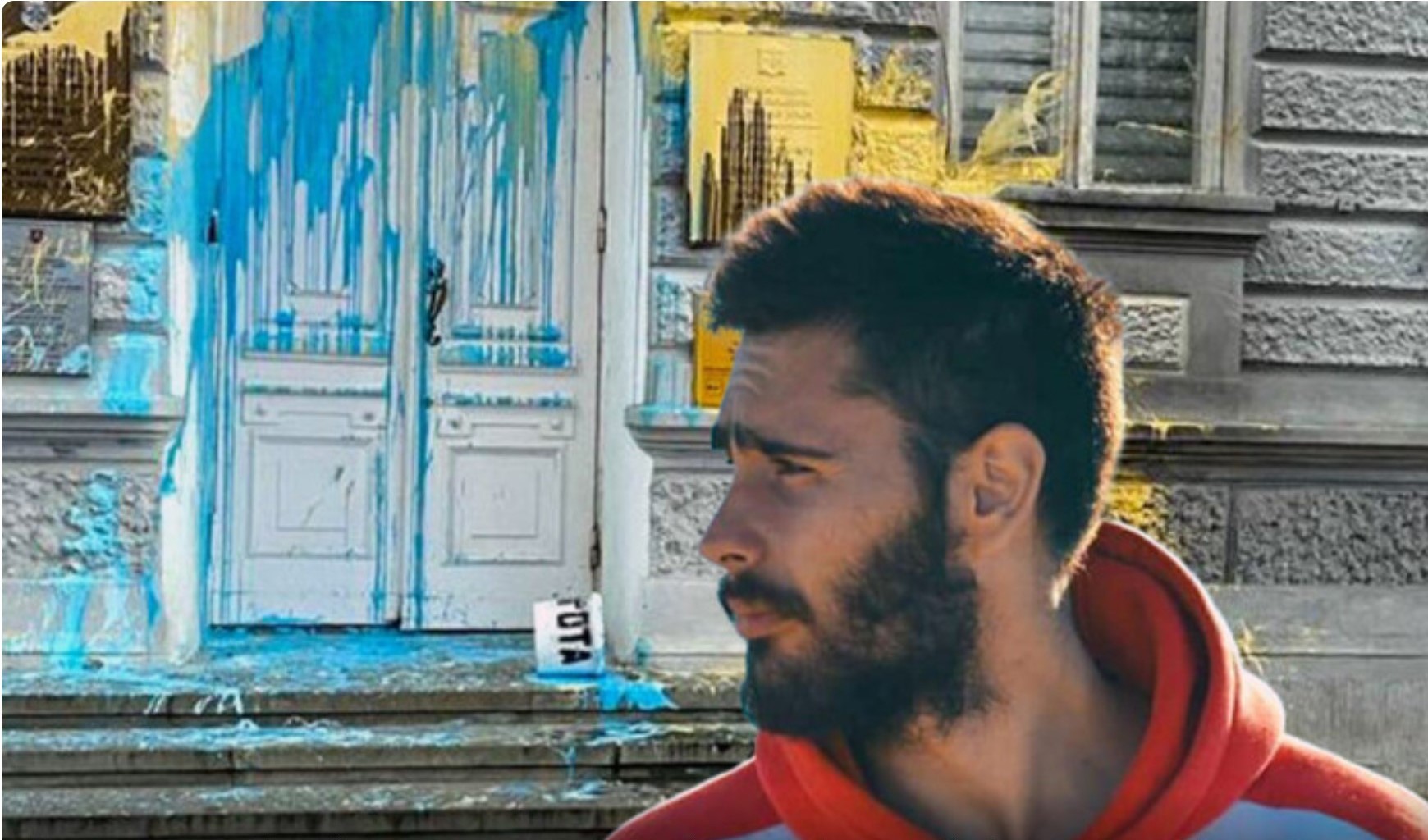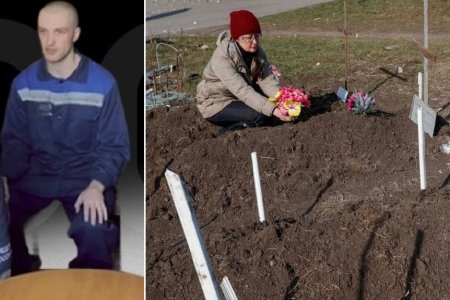
Russia has formally suspended its ban on the Taliban after several years of fraternizing with the movement’s leaders despite a 2003 Supreme Court ruling declaring the Taliban a terrorist organization. It will now presumably become the first country to recognize the Taliban government in Afghanistan which continues to be widely recognized as terrorist, and whose treatment of women, in particular, has elicited international outrage. Moscow’s political move was swiftly implemented by a supreme court which has long proven willing to take orders from the Kremlin on whom to ban as ‘terrorist’ or ‘extremist’. A very large number of its rulings, including some declaring regiments of Ukraine’s Armed Forces ‘terrorist’, have been used since 2014 to pass horrific sentences against Crimean Tatar and other Ukrainian political prisoners and against prisoners of war.
The formal excuse for Russia’s move on 17 April was the Taliban’s supposed “success battle with the terrorism” posed by the so-called ‘Islamic State’, as well as with fighting the drug trade. The claim is rather curious given that Russia’s rapprochement had begun in early 2021. It did not help Russia’s FSB to prevent the terrorist attack on the Crocus City Hall concert venue outside Moscow in March 2024. Although the attack was probably carried out by an Afghan branch of Islamic State, it was US officials who tried to warn Moscow of the imminent attack and were ignored. Russia’s FSB was far too busy concocting fake ‘terrorism’ charges against Ukrainians to heed serious warnings about very real terrorists who killed 145 people that night. Worth noting that Russian propaganda media immediately came up with a deepfake video trying to blame Ukraine for the attack. In October 2018, Russian and Russian occupation media stopped calling a terrible shooting at a college in occupied Kerch ‘terrorism’ when it became clear that that initial attempts to claim the perpetrator was Crimean Tatar had failed and that they couldn’t pretend that ‘Ukraine’ was behind it
Russia has been holding high-level negotiations with both the Taliban and Hamas for several years. In May 2024, Russian leader Vladimir Putin claimed that “the Taliban are the legal authorities in Afghanistan, and that means that Russia must go by the real situation and build relations accordingly.” The position is curious, and not only because no other country has recognized the Taliban. All democratic countries have recognized Ukraine’s presidential and parliamentary elections since 2014 as free and fair, with only the Kremlin trying to claim that democratically elected Ukrainian leaders are somehow illegitimate.
It is not surprising that the massive increase in Russia’s so-called Register of ‘terrorists and extremists’ began in 2014, with the list including a huge, and ever-mounting number of Crimean Tatar and other Ukrainian political prisoners and, increasingly, prisoners of war.
Hizb ut-Tahrir and Russia’s attack on the Crimean Tatar human rights movement

The 14 February 2003 Russian supreme court ruling that has now been suspended with respect to the Taliban designated a large number of organizations as terrorist. The inclusion of some was as uncontroversial as the banning of the Taliban. Others were not, with this doubtless the reason that the ruling was kept secret until after it could no longer be challenged in court, by the organizations and human rights NGOs. The ruling made Russia the only country to ban Hizb ut-Tahrir as a ‘terrorist organization’, with this changing only in 2016 when Uzbekistan, which regularly persecutes members of Hizb ut-Tahrir also claimed it to be ‘terrorist’. Hizb ut-Tahrir undoubtedly has highly contentious views, but it is a peaceful Muslim organization which seeks adherents through education, not guns. Most importantly, Hizb ut-Tahrir is legal in Ukraine, and Russia, as an occupying power, is prohibited by international law from applying its legislation on any occupied territory, including Crimea.
Russia began carrying out armed raids of peaceful Crimean Tatar, as well as some Ukrainian Muslim, families in January 2015, with men arrested on insane ‘terrorism’ charges based solely on the 2003 Russian supreme court ruling. Since 2017, Russia has very openly been using horrific ‘terrorism’ charges against civic journalists and activists from the Crimean Solidarity human rights movement, as well as other forms of persecution against courageous lawyers defending the political prisoners. The flawed ruling is quite literally the only excuse for surreal charges of ‘organizing’ or ‘taking part’ in a terrorist organization (Article 205.5 § 1 and 2, respectively, of Russia’s criminal code. Since 2016, an additional charge of ‘planning violent seizure of power’ (Article 278) has invariably been used, although the armed FSB and other enforcement officers who carry out ‘searches’ of the men’s homes never pretend to be looking for anything but ‘prohibited religious literature’.
The sentences have been getting larger and larger with Crimean Tatar journalist Remzi Bekirov, for example, sentenced to 19 years without any crime. Guilty verdicts and appalling sentences are essentially guaranteed even in cases where this must result in the political prisoner’s death. Russia has already effectively tortured to death 60-year-old Crimean Tatar civic activist Dzhemil Gafarov and is very likely to cause the death of Crimean Solidarity journalist Amet Suleimanov, and others.
‘Selective terrorism’
Since 2014, but especially after Russia’s full-scale invasion of Ukraine, peaceful acts of protest have increasingly been treated as ‘terrorism’ and resulting in huge sentences.

Bohdan Ziza (Azizov), who turned 30 on 23 November 2024, has been imprisoned since 16 May 2022. At around 4 a.m. that day, the young street artist from Yevpatoria (Crimea) splashed paint in the blue and yellow colours of Ukraine’s flag over the entrance to the occupation administration building. Although he also threw two Molotov cocktails, this was evidently an act of protest, and absolutely not the ‘terrorism’ used to sentence him to 15 years (details here).
Abducted civilian hostages
Although the practice dates back to 2014, Russia began seizing civilian hostages en mass after its full-scale invasion of Ukraine in 2022. Many have been sentenced or are facing huge sentences on ‘terrorism’ charges under Russian legislation. In many cases, such as that of Yanina Akulova, Dmytro Sergieiev and Anton Zhukovsky from occupied Melitopol, the only proof of preposterous charges (of planning an attack on a market) came from videoed ‘confessions’ extracted while the Ukrainians were held incommunicado and almost certainly through torture.
In other cases, the alleged acts of resistance or protest may well have taken place but were in no way ‘terrorism’. Two Ukrainians from occupied Mariupol, Aliona Holtvenko and Oleksandr Saakian were recently sentenced to 18 and 22 years, respectively, on charges that, at least in Holtvenko’s case, pertained solely to arson attacks on three cars bearing the symbols indicating support for Russia’s war against Ukraine.
Russia has also come up with the even more cynical charge of ‘international terrorism’ although the Ukrainians seized, tortured and facing huge sentences are also accused of acts of resistance, with the ‘international’ aspect seemingly provided by Russians taking part in the aggressor state’s invasion of Ukraine.
‘Terrorism’, as ordered
Since 2022, Russia’s supreme court, as well as the Southern District Military Court in Rostov, have provided several ‘terrorist’ designations which were clearly aimed at facilitating Russia’s persecution of prisoners of war and civilian hostages.
On 1 June 2022, the supreme court declared the Noman Çelebicihan Battalion ‘terrorist’, although, despite the name, this was a peaceful civic organization in mainland Ukraine supporting the civic blockade of Crimea and no longer even exists. Although Russia’s persecution of people on charges of involvement in the Battalion escalated sharply after its full-scale invasion of Ukraine, the charges laid so far are not under terrorism legislation. This, however, is likely to be a question of time.

On 2 August 2022, the same supreme court declared Ukraine’s Azov Regiment ‘terrorist’. The move was internationally condemned and understood to be aimed at persecuting Ukrainian defenders of Mariupol, many of whom were serving in the Azov Regiment. This soon proved to be the case, with analogous rulings passed by the Southern District Military Court on 23 September 2023 and used for the same illegal sentences against defenders from the Aidar Battalion and Donetsk Battalion Those in Moscow commissioning such grotesque rulings must understand that they can only provide them with the paperwork for prosecuting Ukrainian prisoners of war and civilian hostages, imprisoned because they served in one of the above military formations back in 2015 or thereabouts. There can clearly be no legitimacy, and not only because Azov, Aidar and the Donetsk Battalion are all units of the Ukrainian Armed Forces. The law, even in Russia, is not retrospective, and Russian courts are churning out horrific sentences against men who were taken prisoner at least months, but sometimes many years, before the purported grounds for their prosecution in the form of the rulings were provided.
See also:
Russia’s ‘Azov trial’ – one Ukrainian POW tortured to death, 23 given monstrous sentences
Death sentence and persecution of Crimean Tatar family in Russia’s war against Crimean Solidarity



